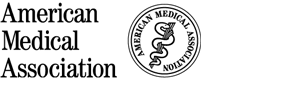What If Your Infant Has Asthma?
The lungs of an infant do not function as efficiently as the lungs of
an older child. As a result, a severe episode of asthma in an infant
can quickly result in lung failure.
Things to be aware of
- Asthma is sometimes more difficult to diagnose in young infants
compared to older children. Many "nonasthma" diseases can mimic
asthma.
- Over one-third of children with asthma will have symptoms under
1 year of age, and more than half will have had symptoms by 2 years
of age.
- Even in infants, there are many medicines available to treat
asthma.
What to do
- Follow the appointment schedule for checking on your infant's
asthma. Your physician will want to see your baby regularly, even if
your baby is not having symptoms.
- If your infant has asthma symptoms, act quickly. Follow the
asthma action plan that you and your physician developed for
handling symptoms.
- Watch your infant closely for signs to seek emergency care.
These signs include:
- Breathing rate increases (to over 40 breaths per minute while
the infant is sleeping). Count the number of breaths in 15 seconds
and multiply by 4.
- Suckling or feeding stops, or becomes difficult.
- Skin between your infant's ribs is pulled tight.
- Chest gets bigger.
- Coloring changes (pale or red face; fingernails turn blue).
- Cry changes in quality - becomes softer and shorter.
- Nostrils open wider (nasal flaring).
- Grunting.
Be prepared. Do not wait until the last minute to learn how to
handle an emergency. Have an asthma action plan that includes how
you'll get to your physician or hospital and who will watch your other
children.
Concerns about medications
- Many of the same medicines used for older children and adults
can be safely used in infants.
- Most asthma medications have no long-term effects, that is,
their use during infancy will not cause problems when your child is
older or becomes an adult.
